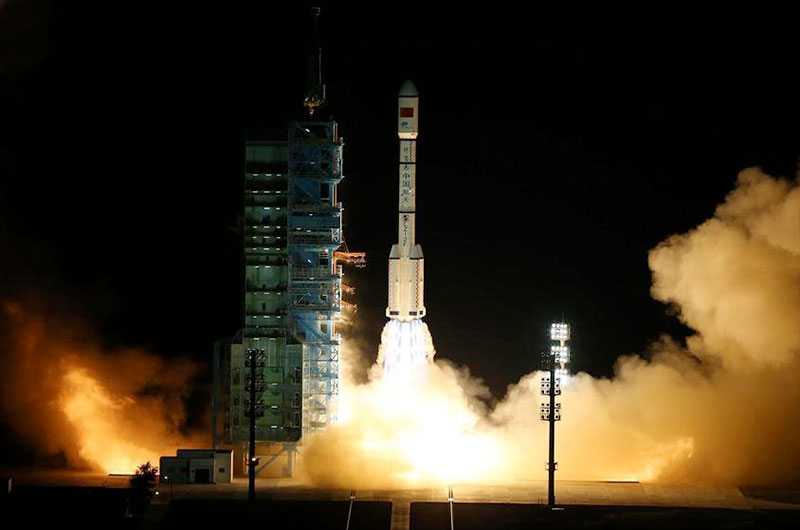China's Tiangong-2 space lab to re-enter atmosphere under controlChina's Tiangong-2 space lab is planned to be controlled to leave orbit and re-enter the atmosphere on July 19 (Beijing time), China Manned Space Engineering Office (CMSEO) announced on Saturday (July 13).
Most of the spacecraft will be burnt up in the atmosphere, and a small amount of debris is expected to fall in the safe sea area in the South Pacific (160-90 degrees west longitude and 30-45 degrees south latitude), according to CMSEO.
Tiangong-2, an improved version of Tiangong-1, is China's first space lab in real sense. Launched on September 15, 2016, the space lab has worked in orbit over 1,000 days, much longer than its 2-year designed life.
Comprising an experiment module and a resource module, the space lab has a total length of 10.4 meters, a largest diameter of 3.35 meters and a takeoff weight of 8.6 tonnes. After its solar panels are unfolded, its wingspan is about 18.4 meters wide. It has functions of rendezvous and docking with the Shenzhou manned spaceship and the Tianzhou cargo spacecraft.
China has carried out a series of scientific and technological space experiments, and tested the in-orbit propellant refueling technology on Tiangong-2.
All the experiments in the space lab have been completed. The spacecraft and the instruments on it are functioning well, said CMSEO.
Preparations for the controlled re-entry into atmosphere of Tiangong-2 are proceeding steadily as planned. China will timely report the information about the spacecraft after it re-enters the atmosphere to fulfill its international obligations, said CMSEO.












